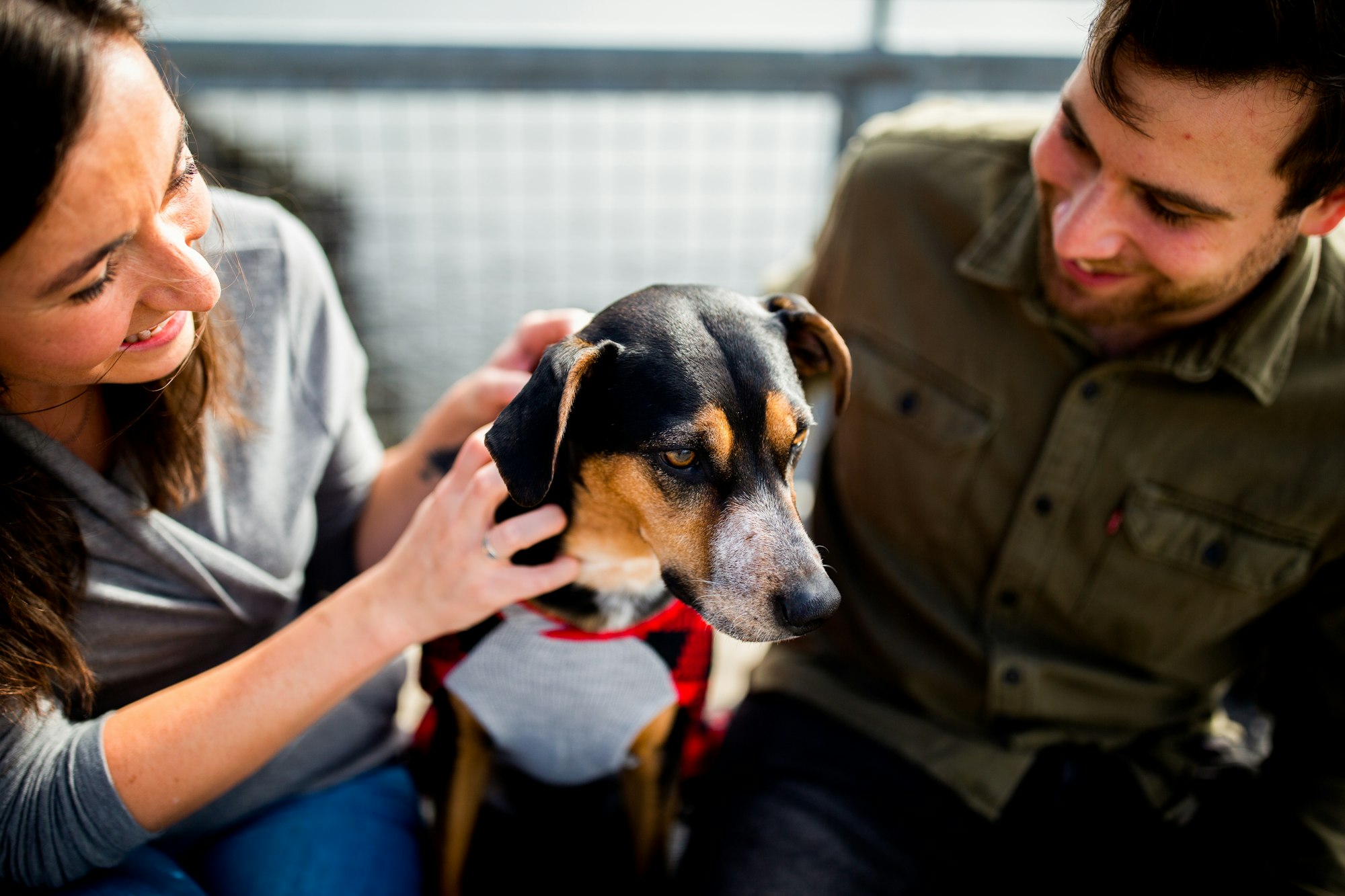Strep throat is a common bacterial infection that affects humans, causing a sore throat, difficulty swallowing, and other symptoms. But can dogs get strep throat too? In this article, we will explore whether our furry friends are susceptible to this bacterial infection and what signs to look out for.

Can Dogs Get Strep Throat? Understanding
Dogs can potentially contract strep throat, although it is relatively uncommon compared to humans. Strep throat is primarily a bacterial infection that affects the throat and tonsils, caused by the Streptococcus bacteria.
While strep throat is more commonly associated with humans, dogs can still be susceptible to certain strains of Streptococcus bacteria. However, it's necessary to note that dogs are more likely to develop other types of bacterial infections that affect their respiratory or gastrointestinal systems.
It's worth mentioning that the transmission of strep throat between humans and dogs is rare. Strep throat is typically transmitted through direct contact with respiratory droplets from an infected individual, such as coughing or sneezing. The likelihood of dogs contracting strep throat from humans or vice versa is minimal.
If you suspect that your dog may have strep throat, it is crucial to consult a veterinarian for an accurate diagnosis. A veterinarian can evaluate your dog's symptoms, perform necessary tests, and provide appropriate treatment if needed.
Remember to prioritize your dog's overall health and well-being by providing regular veterinary care, maintaining a clean living environment, and practicing good hygiene around your pet.
The Risk Factors for Strep Throat in Dogs
Although dogs can potentially get strep throat, certain factors increase their susceptibility to this bacterial infection. Let's take a closer look at some of these risk factors:
1. Close Proximity to Infected Humans
Dogs that live in close quarters with humans diagnosed with strep throat are at a higher risk of contracting the infection. The bacteria can be transmitted through respiratory droplets when an infected person coughs, sneezes, or talks near the dog. Therefore, if a family member or someone in your household has strep throat, it is crucial to limit your dog's exposure to them until they have recovered.
2. Weakened Immune System
A weakened immune system can make dogs more susceptible to various infections, including strep throat. Conditions such as malnutrition, chronic illnesses, or certain medications can compromise their immune response, making them more vulnerable to bacterial infections. It is vital to ensure your dog maintains a healthy lifestyle and receives proper nutrition to support their immune system.
3. Overcrowded or Stressful Environments
Dogs that reside in overcrowded or stressful environments, such as shelters or boarding facilities, are at a higher risk of contracting strep throat. These environments can facilitate the spread of infectious bacteria, including Streptococcus pyogenes. If you frequently board your dog or they spend time in such settings, it is essential to choose reputable and hygienic facilities.

Symptoms of Strep Throat in Dogs
Strep throat can manifest differently in dogs compared to humans. If your dog has contracted strep throat, there are several symptoms to watch out for:
Sore Throat and Difficulty Swallowing: Dogs with strep throat may experience discomfort and pain in their throat, leading to difficulty swallowing. They may exhibit signs of discomfort when eating or drinking.
Coughing and Sneezing: Strep throat can cause dogs to develop a persistent cough or experience bouts of sneezing. These symptoms may be accompanied by nasal discharge. Click to get answer of most common question why wont my dog stop sneezing?
Fever and Lethargy: Like humans, dogs with strep throat can develop a fever. A high body temperature, combined with general lethargy or weakness, is a common indication of an infection.
Loss of Appetite: Dogs with strep throat may lose interest in their food due to the discomfort caused by swallowing. A sudden decrease in appetite or refusal to eat should raise concerns.
Swollen Lymph Nodes: Dogs may experience swollen lymph nodes, particularly in the neck area.
Bad Breath: Strep throat can cause foul-smelling breath in dogs, similar to the halitosis experienced by humans.
It is significant to note that these symptoms are not exclusive to strep throat and can be associated with other health conditions as well. If you observe any of these symptoms in your dog, it is advisable to consult a veterinarian for an accurate diagnosis and appropriate treatment.
Diagnosing Strep Throat in Dogs
Diagnosing strep throat in dogs requires a thorough examination by a veterinarian. Here's how the diagnosis process typically unfolds:
Veterinary Examination: The veterinarian will conduct a comprehensive physical examination of your dog. They will assess the symptoms, check the throat for signs of inflammation or infection, and evaluate your dog's overall health. So, its critical to determine how often vet.
Throat Swab and Laboratory Testing: To confirm the presence of Streptococcus bacteria, the vet may take a throat swab from your dog. This swab will be sent to a laboratory for testing. The lab will analyze the sample to identify the specific bacteria causing the infection.
Laboratory testing is crucial because it helps distinguish strep throat from other similar conditions, such as viral infections or other bacterial throat infections. By pinpointing the exact cause of the symptoms, the veterinarian can provide targeted treatment for your dog.

It is demanded to seek veterinary care promptly if you suspect your dog has strep throat or any other health issue. A professional diagnosis ensures appropriate treatment and supports your dog's recovery.
Treatment for Strep Throat in Dogs
If your dog is diagnosed with strep throat, the veterinarian will recommend a treatment plan to address the infection. The primary treatment options for strep throat in dogs typically include:
Antibiotics: Antibiotics are the cornerstone of treating strep throat in dogs. The specific antibiotic prescribed will depend on the severity of the infection and the susceptibility of the bacteria. It is essential to administer the antibiotics exactly as directed by the veterinarian and complete the full course of treatment.
Pain Management: Medications or soothing throat sprays may be recommended to alleviate your dog's discomfort and pain.
Fluid Therapy: If your dog is dehydrated due to reduced fluid intake, the veterinarian may provide fluids therapy intravenously or subcutaneously.
Supportive Care: In addition to antibiotics, supportive care is crucial for your dog's recovery. This may involve providing a comfortable and quiet resting environment, ensuring proper hydration, and offering easily digestible, nutritious food. Adequate rest and nutrition are vital for your dog's immune system to combat the infection effectively.
Follow-Up Visits: Follow-up visits to the veterinarian may be necessary to monitor your dog's progress and make any adjustments to the treatment plan if needed. It's typical to communicate with your veterinarian and follow their recommendations closely for the best outcome.
Remember, never attempt to medicate your dog with human antibiotics or any other medications without professional guidance. The dosage and specific antibiotics for dogs differ from those used for humans, and incorrect treatment can have adverse effects.
Supporting Your Dog's Recovery
During your dog's recovery from strep throat, you can take several steps to support their healing process:

1. Follow Medication Instructions: Administer antibiotics as prescribed by the veterinarian and complete the full course of treatment.
2. Provide a Comfortable Environment: Create a calm and stress-free environment for your dog to aid in their recovery.
3. Encourage Fluid Intake: Ensure your dog stays hydrated by offering fresh water and possibly moistening their food to make it easier to swallow.
4. Monitor Progress: Keep a close eye on your dog's symptoms and report any changes or concerns to your veterinarian.
Preventing Strep Throat in Dogs
While strep throat in dogs is relatively rare, taking preventive measures can help minimize the risk of your dog contracting the infection. Here are some steps you can take to prevent strep throat in dogs:
Vaccination: Currently, there is no specific strep throat vaccine available for dogs. However, keeping your dog up to date with their routine vaccinations helps maintain their overall health and immune system. By preventing other common illnesses, you can indirectly reduce the risk of complications that may make your dog more susceptible to strep throat.
Good Hygiene Practices: Practicing good hygiene is essential in preventing bacterial infections in good family dogs. Clean your dog's food and water bowls regularly, ensuring they are free from any leftover food or bacteria buildup. Wash your dog's bedding regularly to maintain cleanliness. Additionally, practice proper hand hygiene after handling your dog, especially if they are exhibiting signs of illness.
Limit Exposure: Avoid exposing your dog to environments where they may come into contact with infected individuals or other animals exhibiting symptoms of strep throat or other respiratory infections. Limiting exposure to potentially contaminated areas can reduce the risk of transmission.
If you have multiple dogs, it's crucial to isolate any dog showing symptoms of strep throat to prevent the spread of the infection to others. Promptly seek veterinary care if you suspect your happy dog has strep throat or any other health issues.

By implementing these preventive measures, you can help safeguard your dog's health and reduce the chances of strep throat or other bacterial infections.
Strep Throat in Dogs vs. Humans
While strep throat affects both dogs and humans, there are some notable differences:
Humans are more susceptible to strep throat compared to dogs.
The symptoms of strep throat in dogs may be less pronounced than in humans.
Strep throat is not contagious from dogs to humans or vice versa.
FAQs
To address some common queries regarding dogs and strep throat, here are a few frequently asked questions along with their answers:
1. Can dogs transmit strep throat to humans?
A1: The chances of dogs transmitting strep throat to humans are extremely low. Strep throat is primarily a human infection and is not commonly passed on to dogs or vice versa.
2. Is strep throat common in dogs?
A2: Strep throat is rare in dogs compared to humans. Dogs are more susceptible to other bacterial infections that affect their respiratory or gastrointestinal systems.
3. Are certain dog breeds more prone to strep throat?
A3: There is no evidence to suggest that specific dog breeds are more prone to strep throat. Any dog can potentially develop this infection, although it is uncommon.
4. Can strep throat in dogs be fatal?
A4: With proper diagnosis and treatment, strep throat in dogs can be effectively managed and rarely leads to fatality. Timely veterinary care is essential for a positive outcome.
5. Can strep throat in dogs recur?
A5: While strep throat can recur in humans, there is limited information available on the recurrence of strep throat in dogs. Further research is needed to determine the likelihood of recurrence in canines.
6. How is strep throat diagnosed in dogs?
A6: Veterinarians typically diagnose strep throat in dogs by conducting a physical examination, assessing symptoms, and performing laboratory tests on throat swabs or blood samples.
7. What is the treatment for strep throat in dogs?
A7: Treatment for strep throat in dogs usually involves a course of antibiotics prescribed by a veterinarian. It is crucial to complete the entire course as prescribed to ensure complete eradication of the bacteria.
8. Can strep throat in dogs be prevented?
A8: While it may not be possible to completely prevent strep throat in dogs, practicing good hygiene and minimizing exposure to infected individuals can help reduce the risk. Regular vaccinations and maintaining a healthy lifestyle also contribute to a strong immune system, which can aid in preventing various infections.
9. Are there any complications associated with strep throat in dogs?
A9: If left untreated, strep throat in dogs can lead to complications such as pneumonia or the spread of the infection to other parts of the body. Timely veterinary care is crucial to prevent such complications.
Conclusion
While strep throat is primarily a human infection, dogs can occasionally be affected by this bacterial condition. Dog owners need to be aware of the symptoms and seek veterinary care for proper diagnosis and treatment. By maintaining good hygiene practices and keeping up with routine vaccinations, we can help protect our furry companions from strep throat and other bacterial infections.